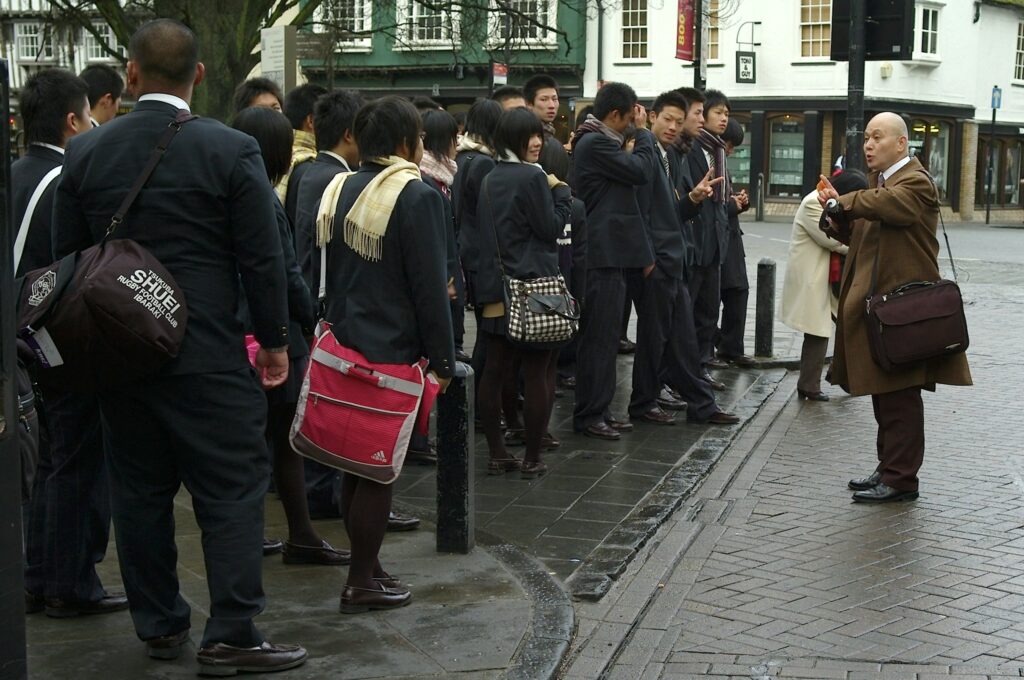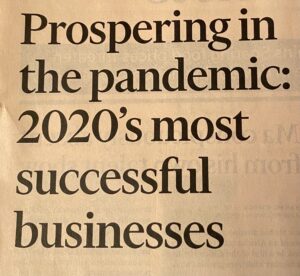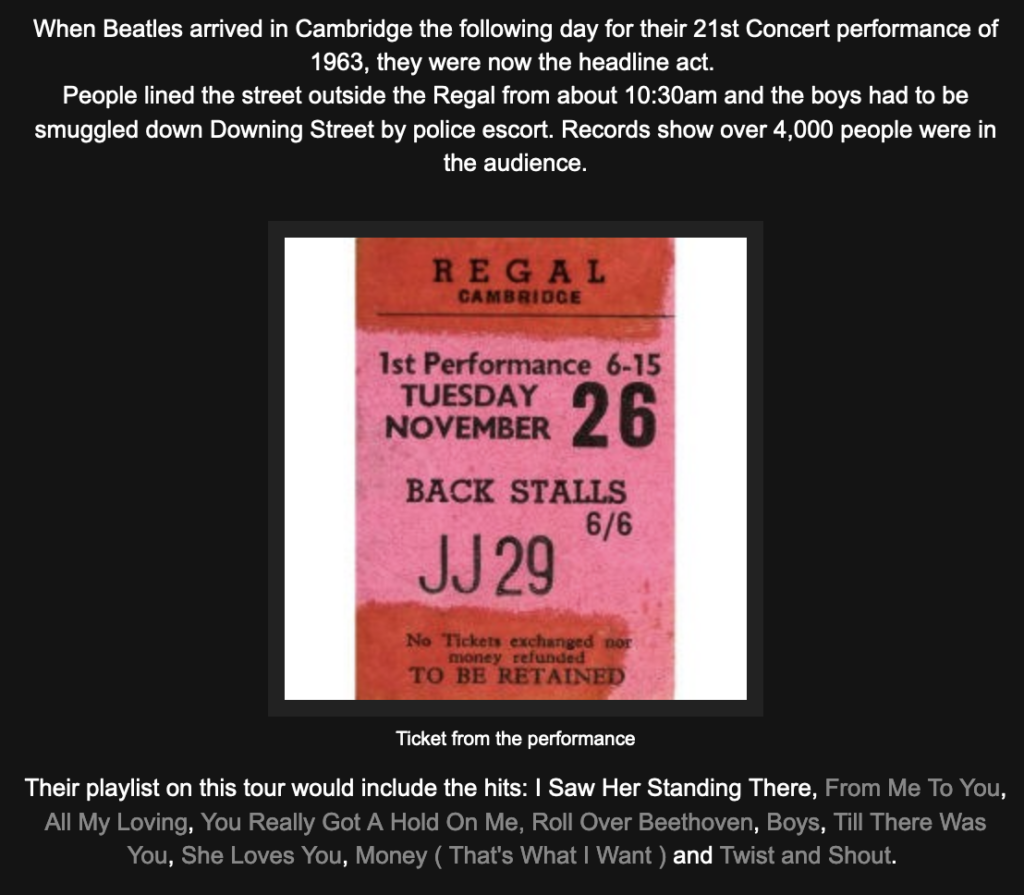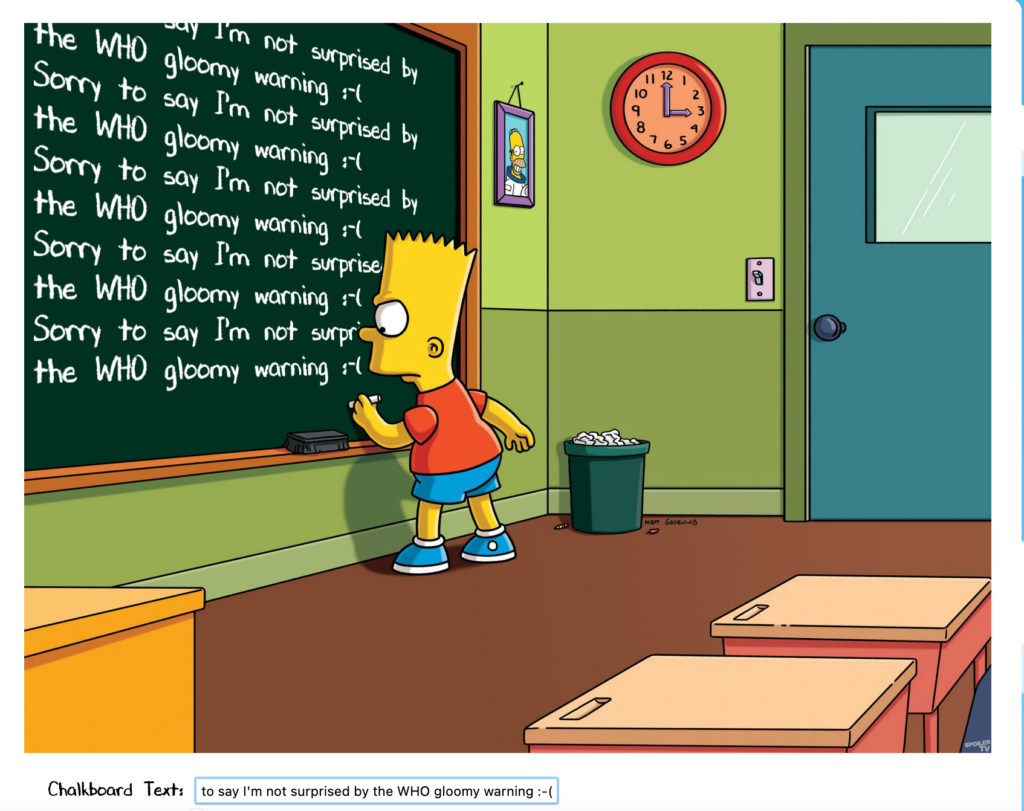When tourists roamed the earth
Quote of the Day
”Everything you see I owe to spaghetti.”
- Sophia Loren
Hmmm… I wonder.
Musical alternative to the morning’s radio news
Bob Dylan – Subterranean Homesick Blues | 1965
My favourite version of this song.
Long Read of the Day
Monopoly Versus Democracy in the New Gilded Age
Terrific Foreign Affairs essay by Zephyr Teachout about lessons from previous progressive, anti-monopoly movements.
The parallels with the present day are obvious, and it has become commonplace to hear the current era described as a new Gilded Age. As the journalist Barry Lynn points out in his book Liberty From All Masters, the robber barons shared with today’s high-tech monopolists a strategy of encouraging people to see immense inequality as a tragic but unavoidable consequence of capitalism and technological change. But as Lynn shows, one of the main differences between then and now is that, compared to today, fewer Americans accepted such rationalizations during the Gilded Age. Today, Americans tend to see grotesque accumulations of wealth and power as normal. Back then, a critical mass of Americans refused to do so, and they waged a decades-long fight for a fair and democratic society. On the other hand, today’s antimonopoly movements are intentionally interracial and thus avoid a massive failure of the populists and progressives of the late Gilded Age, who abandoned Black Americans even though they had played a crucial role in fostering both movements.
Worth a read. The obvious takeaway is that you can have democracy or you can have powerful monopolies, but you can’t have both. Another historical lesson is that in order to deal with corporate power, we have to tackle it in a wider framework — for example, it’s necessary to clean up the mess of private funding of political campaigns. And in the UK we’d also need to make the electoral system more fairly representative. Nearly 4m people voted for UKIP in the 2015 general election and got… precisely one MP.
All I want for 2021 is to see Mark Zuckerberg up in court
This morning’s Observer column. The tech giants’ law-free bonanza is coming to an end on both sides of the Atlantic, but let’s speed up the process.
Interestingly, Stoller suggests that another approach (inspired by the way trust-busters in the US acted in the 1930s) could have useful leverage on corporate behaviour from now on. Monopolisation isn’t just illegal, he points out, “it is in fact a crime, an appropriation of the rights and property of others by a dominant actor. The lengthy trial is essentially akin to saying that bank robbers getting to keep robbing banks until they are convicted and can probably keep the additional loot.”
Since a basic principle of the rule of law is that crime shouldn’t pay, an addition of the possibility of criminal charges to the antitrust actions might, like the prospect of being hanged in the morning (pace Dr Johnson), concentrate minds in Facebook, Google, Amazon and Apple. As an eternal optimist, I cannot think of a nicer prospect for 2021 than the sight of Mark Zuckerberg and Sundar Pichai in the dock – with Nick Clegg in attendance, taking notes. Happy new year!
Do read the whole thing.
Other, hopefully interesting, links
- How to read 50 books in 2021. Some useful tips from James Crabtree. Link
- 21 Things That Kept Me Going In 2020. Some lovely discoveries from Jason Kottke (Whom God Preserve). Link
- Adobe Flash rides off into the sunset. Adobe terminated support for its Flash software on Christmas eve. It won’t start blocking Flash content until January 12th but major browsers seem to have shut it down already and Microsoft will block it in most versions of Windows. It’s over. Link.
This blog is also available as a daily email. If you think this might suit you better, why not subscribe? One email a day, delivered to your inbox at 7am UK time. It’s free, and there’s a one-click unsubscribe if you decide that your inbox is full enough already!







